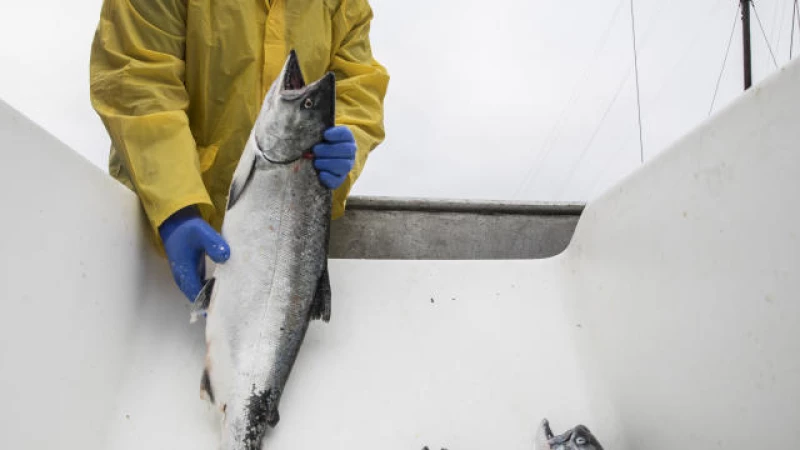The federal council that regulates fishing along the West Coast recommended Wednesday that the California ocean salmon season be canceled for the second year in a row. The renewed ban is a devastating blow to the state's commercial and recreational fishing industry, still reeling from a similar decision last year.
The Pacific Fishery Management Council based its decision on continued low water levels and high temperatures in rivers where salmon spawn. Scientists say these poor river and ocean conditions have resulted in historically low population numbers for the iconic species.
The Sacramento River watershed provides the greatest proportion of salmon on the West Coast. It used to support between 1 and 2 million fish every year, but in 2023, only about 134,000 adult fall-run Chinook, also known as king salmon, returned to that river to spawn.
The economics of the decision are crippling for communities that rely on revenue from commercial or recreational fishing activities. Estimates of financial losses stemming from last year's cancellation in California run from $45 million to $65 million.
Concerns are rising among industry groups as the Pacific Coast fishing fleet faces the second consecutive cancellation of the salmon fishing season. This decision is expected to have a long-lasting impact, potentially leading to a further decline in the number of vessels. According to the council, the fleet has decreased to 464 vessels in 2022, a significant drop from nearly 5,000 vessels in the 1980s.
Last year's closure already had a severe economic impact on many sportfishing guides, with more than 80% of their annual business disappearing. The looming possibility of a repeat closure this year is causing widespread anxiety within the fishing community. The salmon fishing season, which typically spans from May to October, is a crucial period for these businesses.
The council's recommendation will now be forwarded to the National Marine Fisheries Service for approval, with a decision expected by mid-May.







